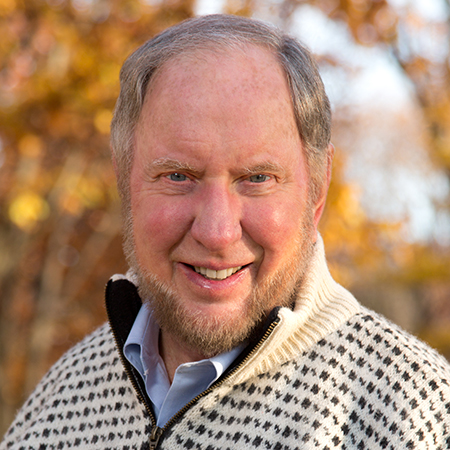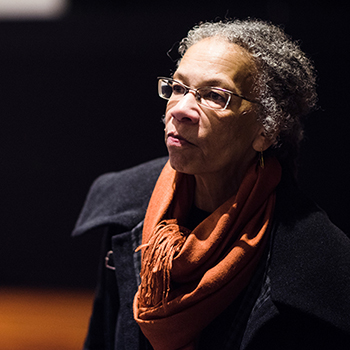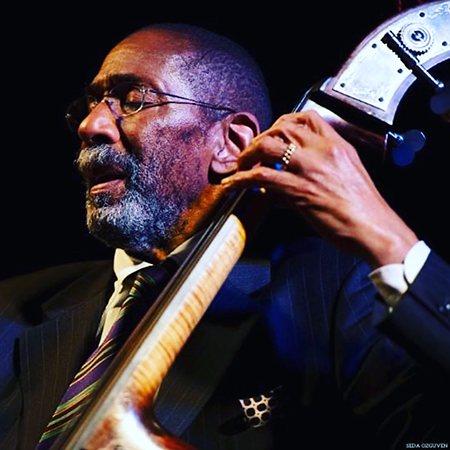Clark to hold 119th Commencement on May 21

Clark University will hold its 119th Commencement exercises at noon on Sunday, May 21, on the main Campus Green.
In addition to recognizing the Class of 2023, honorary degrees will be conferred on three accomplished individuals: a renowned political scientist and bestselling author whose advocacy for the strengthening of American communities has drawn the attention of U.S. presidents; a geographer who has championed the end of unjust incarcerations and co-founder of the California Prison Moratorium Project; and a legendary, Grammy-winning bass player whose transcendent artistry has influenced jazz music for more than six decades.

A renowned scholar, political scientist, and keen observer of American society, Dr. Robert D. Putnam will receive an honorary Doctor of Humane Letters degree and will deliver the Commencement Address. Dr. Putnam is the Malkin Research Professor of Public Policy at Harvard University. Across his long career, he has collaborated with U.S. and world leaders, taught thousands of students, and been a vocal and tireless advocate for building American communities that sustain and empower their members. He is a member of the National Academy of Sciences, a Fellow of the British Academy, and past president of the American Political Science Association. In 2006 Dr. Putnam received the Skytte Prize, the world’s highest accolade for a political scientist. In 2013, President Barack Obama awarded him the National Humanities Medal — the nation’s highest honor for contributions to the humanities — for “deepening our understanding of community in America,” and in 2018 the International Political Science Association awarded him the Karl Deutsch Award for cross-disciplinary research.
Dr. Putnam has written fifteen books, including the seminal “Bowling Alone: The Collapse and Revival of American Community,” one of the most-cited social science works in the last half-century. His most recent bestseller, “Our Kids: The American Dream in Crisis,” chronicled the growing class gap among American youth. He has just completed a study of broad 20th-century American economic, social, political, and cultural trends, entitled “The Upswing: How America Came Together a Century Ago and How We Can Do It Again.”
At Harvard, he has served as Dean of the Kennedy School, Associate Dean of the Faculty of Arts and Sciences, and Director of the Weatherhead Center for International Affairs. He co-founded the Saguaro Seminar, bringing together leading thinkers and practitioners (including President Obama) to develop actionable ideas for civic renewal. His counsel has been sought by national and grassroots leaders on both sides of the aisle and both sides of the Atlantic, including Presidents Clinton, Bush, and Obama, and British Prime Ministers Tony Blair and David Cameron.

Ruth Wilson Gilmore is a professor of Earth and Environmental Sciences, and of American Studies, and is the director of the Center for Place, Culture, and Politics at the City University of New York Graduate Center. She is a renowned pioneer in the discipline of carceral geography — the study of the forces and institutions that have come to define modern incarceration. Dr. Gilmore has been a leading scholar and speaker on topics including prisons, decarceration, racial capitalism, oppositional movements, state-making, and more. She is co-founder of many grassroots organizations, including the California Prison Moratorium Project, Critical Resistance, and the Central California Environmental Justice Network. Dr. Gilmore is the author of the prize-winning “Golden Gulag: Prisons, Surplus, Crisis, and Opposition in Globalizing California,” and has written in multiple venues on abolition geography and racial capitalism.
Dr. Gilmore has lectured in Africa, Asia, Europe, and North America. Her honors include the American Studies Association Angela Y. Davis Award for Public Scholarship (2012); the Association of American Geographers Harold Rose Award for Anti-Racist Research and Practice (2014); the SUNY-Purchase College Eugene V. Grant Distinguished Scholar Prize for Social and Environmental Justice (2015–16); the American Studies Association Richard A Yarborough Mentorship Award (2017); and the Association of American Geographers Lifetime Achievement Award (2020). Most recently (along with Angela Y. Davis and Mike Davis), she was named winner of the 2020 Lannan Foundation Lifetime Cultural Freedom Prize. She also serves on the Executive Committee of the Institute for Research on the African Diaspora in the Americas and the Caribbean. Dr. Gilmore to campus will be awarded an honorary Doctor of Humane Letters degree.

Ronald Carter, Grammy-winning musician and one of the most prolific and influential bassists in jazz history, will receive an honorary Doctor of Fine Arts degree. Over the course of his six-decade career, Mr. Carter has recorded more than 2,000 records and played with jazz giants — from Thelonius Monk to Miles Davis. He was a member of the second Miles Davis Quintet in the mid-1960s, and later was a mainstay of CTI Records, making albums under his own name and appearing on many of the label’s records with a diverse range of other musicians. In 1987, Mr. Carter won a Grammy for an instrumental composition for the film “Round Midnight,” and in 1994 won another Grammy for Best Jazz Instrumental Group for a tribute album to Miles Davis. He performed on the Red Hot Organization’s compilation album, “Stolen Moments: Red Hot + Cool,” which was heralded as Album of the Year by TIME magazine. He performed at Clark in 2014.
Mr. Carter is a Distinguished Professor Emeritus in the music department of City College of New York, having taught there for 20 years. He joined the faculty of the Juilliard School in New York City in 2008, teaching bass in the school’s Jazz Studies program. In 2010, he was honored with France’s premier cultural award, the medallion and title of Commander of the Ordre des Arts et des Lettres. He was elected to the DownBeat Jazz Hall of Fame in 2012.


